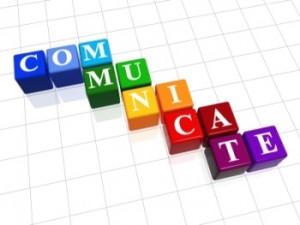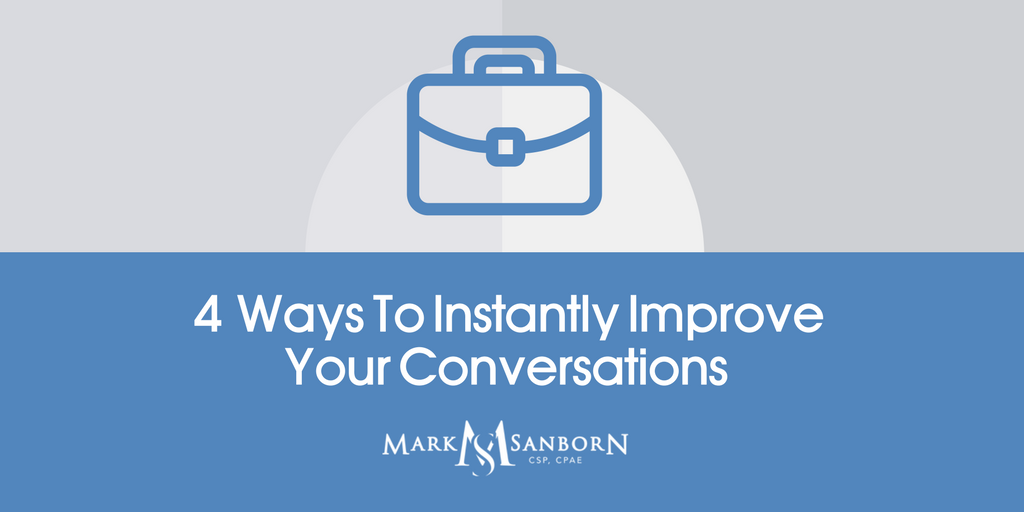 We spend about 30% of our waking time in conversation. By simply improving our conversations we significantly improve the quality of our lives. Here are 4 ways to make every conversation better:
We spend about 30% of our waking time in conversation. By simply improving our conversations we significantly improve the quality of our lives. Here are 4 ways to make every conversation better:
1. Tell the truth.
Many people tell you what you want to hear. A true friend tells you what you need to hear. And a good conversation is always about telling the truth and not blowing smoke or fudging the facts.
If you care for the other person, speak the truth in love. That means giving him or her information they need and can use, delivered with the their best interests in mind. It is about responding honestly rather than dodging a question.
Telling the truth isn’t the same as being brutally honest. Telling the truth is about the willingness to say what needs to be said, even if it is difficult. Being brutally honest is more often about attacking the other person with information. It might make you feel better but usually at the expense of the relationship.
If you are sincere in your intentions, share that with the person you’re talking with. Explain that you’re willing to tell the truth to help, not to hurt.
2. Be clear.
If you don’t know what you want to come out of a conversation you will probably be surprised at what you get.
Be clear on what you’re trying to communicate before you start. Clear intentions greatly increase the odds of getting the results desired.
Are you trying to inform? Get help? Come up with solutions? Communicate concern? There are as many potentially different outcomes as there are conversations.
The million dollar question of great communication: What do I want to have happen as the result of what I say?
Good conversation is about quality, not just quantity. Saying more isn’t the same as communicating better. Clarity makes you more concise, not more wordy.
3. Speak kindly.
A flip response or a curt reply can kill a good conversation. It suggests that the other person isn’t really interested. Sarcasm and negativity are demeaning. Likewise, speaking rapidly or assertively can come across as harsh.
Results-oriented people sometimes forget that how a message is delivered largely determines how it is received.
Speak to others with kindness and you’ll likely get a positive response.
It doesn’t take any more time to be civil and polite than it does to be direct and harsh. Pay attention to how you communicate, not just what you communicate.
4. Talk like a friend.
You don’t have to necessarily be someone’s friend to talk to them like a friend. When you talk like a friend, you are pleasant and upbeat because you value the person you are speaking to. You expect the best from the conversation, and you give your best.
You can talk like a friend to a complete stranger, and he or she will be positively affected by your thoughtfulness. And how often do we take for granted the important people in our lives and make our conversations utilitarian and void of emotion?
A stranger is only a friend you haven’t made yet. Some might think that a corny bromide, but talking to others like a friend is one of the best ways to have more and better friends in your life.
You know how to implement these four suggestions. The challenge is in consistently doing them. And when you do, your conversations–and your life–will instantly improve.
What are some of the ways you’ve used to improve your conversations?









Hi Mark
Thanks for posting your thoughts ! Just came across your blog about a week ago and have really enjoyed it !
I find it ironic that we live in the information age, marinated in “social” media, and yet so many people struggle with basic socializing; i.e. communicating. While I’m not on a campaign against social media, it does seem to me like it detracts from quality interactions with other people.
In answer to your last question I’ll quote something from Stephen Covey that has stuck with me for a long time
[Quote] Most people do not listen with the intent to understand; they listen with the intent to reply.
Cheers